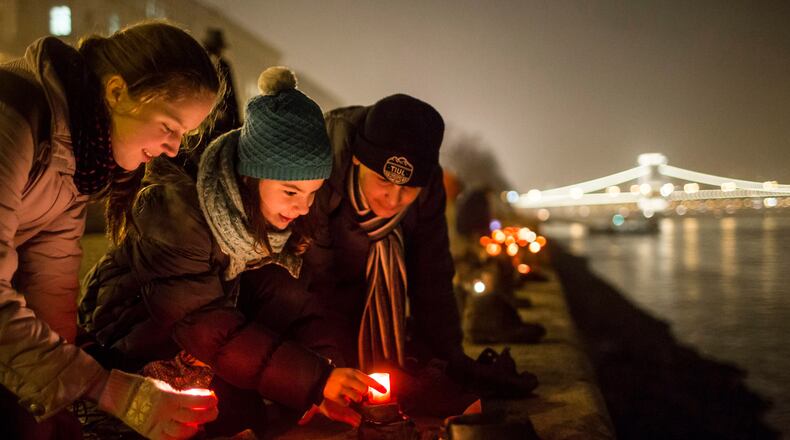The Palm Beach Post broke a story last week about a principal in Boca Raton, Fl., who told a mother that he had to exercise caution in talking about the Holocaust as some parents didn't believe in it.
That story turned into a flashpoint nationwide, and today U.S. Sen. Rick Scott of Florida said the principal should have been fired rather than reassigned.
In an email in April, Spanish River High School principal William Latson responded to a mother who asked how the school taught the Holocaust. While Latson said the school had “a variety of activities” for Holocaust education, he also said those lessons were “not forced upon individuals as we all have the same rights but not all the same beliefs.”
The puzzled mother replied: “The Holocaust is a factual, historical event. It is not a right or a belief.”
As the Palm Beach Post reported:
But the veteran principal doubled down. "Not everyone believes the Holocaust happened," he wrote, according to email records obtained by The Post through a public records request. "And you have your thoughts, but we are a public school and not all of our parents have the same beliefs."
He went on to say that as an educator he had "the role to be politically neutral but support all groups in the school."
"I can't say the Holocaust is a factual, historical event because I am not in a position to do so as a school district employee," Latson wrote.
After the mother reached out, the district talked to Latson, but issued no formal reprimand at the time. That all changed after the Palm Beach Post story, which provoked lots of outrage and a shift in attitude by the district.
A few days ago, Latson was reassigned with the district saying, “His leadership has become a major distraction for the school community.” Latson has apologized for his choice of words.
Some Florida lawmakers are saying that’s not sufficient, including Sen. Scott who tweeted: “This Principal should have been fired, not simply reassigned. There is no excuse for what he expressed. There is no excuse for holocaust denial. There is no excuse for anti-Semitism of any kind.”
But is this principal's absurd comment a symptom of the dread among educators of triggering extremists parents who may then go ballistic?
Even the mother in this case told the Palm Beach Post she didn’t believe Latson was anti-Semitic but that he feared dealing with the parents who don’t believe the Holocaust occurred.
Increasingly, principals say they can no longer count on the central office to back them if parents complain, even when the parents represent a fringe point of view. Parents can take their complaints about a teacher or school to Facebook or Twitter and suddenly a district in Georgia is fielding angry calls from survivalists in Idaho and Oregon.
The rise in challenges to historic and scientific fact in the classroom comes from the same place -- the increasing tendency to treat accepted and easily provable fact as a matter of debate. Facts are falling victim to ideologies.
Educators tell me they have to worry about mentioning “global warming” for fear of setting off parents who don’t accept that climate change is real.
In 2004, the Georgia state school superintendent, hoping to prevent controversy, erased the word “evolution” from the new science curriculum.
But Superintendent Kathy Cox generated a lot more controversy after she substituted "biological changes over time" for “evolution” under the rationale that she didn’t want people concluding “we're going to be teaching the monkeys-to-man sort of thing.” She quickly restored evolution to the Georgia standards after fellow Republicans in the Gold Dome said the state’s reputation was in shambles.
How much do school districts have to cater to parents who treat proven facts as opinion?
Bible literalists continue to argue that creationism belongs on equal footing with evolution in the classroom. One is a religious belief while the other is the fundamental idea in all of life science that, as science advocate and educator Bill Nye says, “unlocks the mysteries of everything from bumblebees to human origins to our place in the universe.”
Your thoughts?
About the Author
The Latest
Featured



